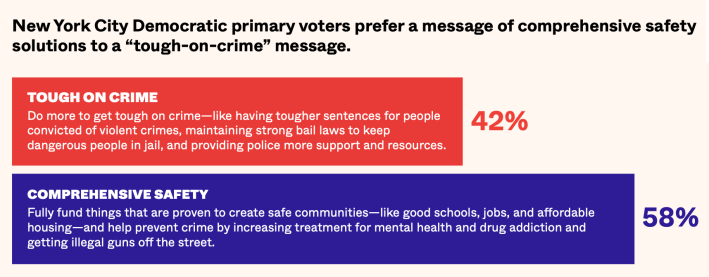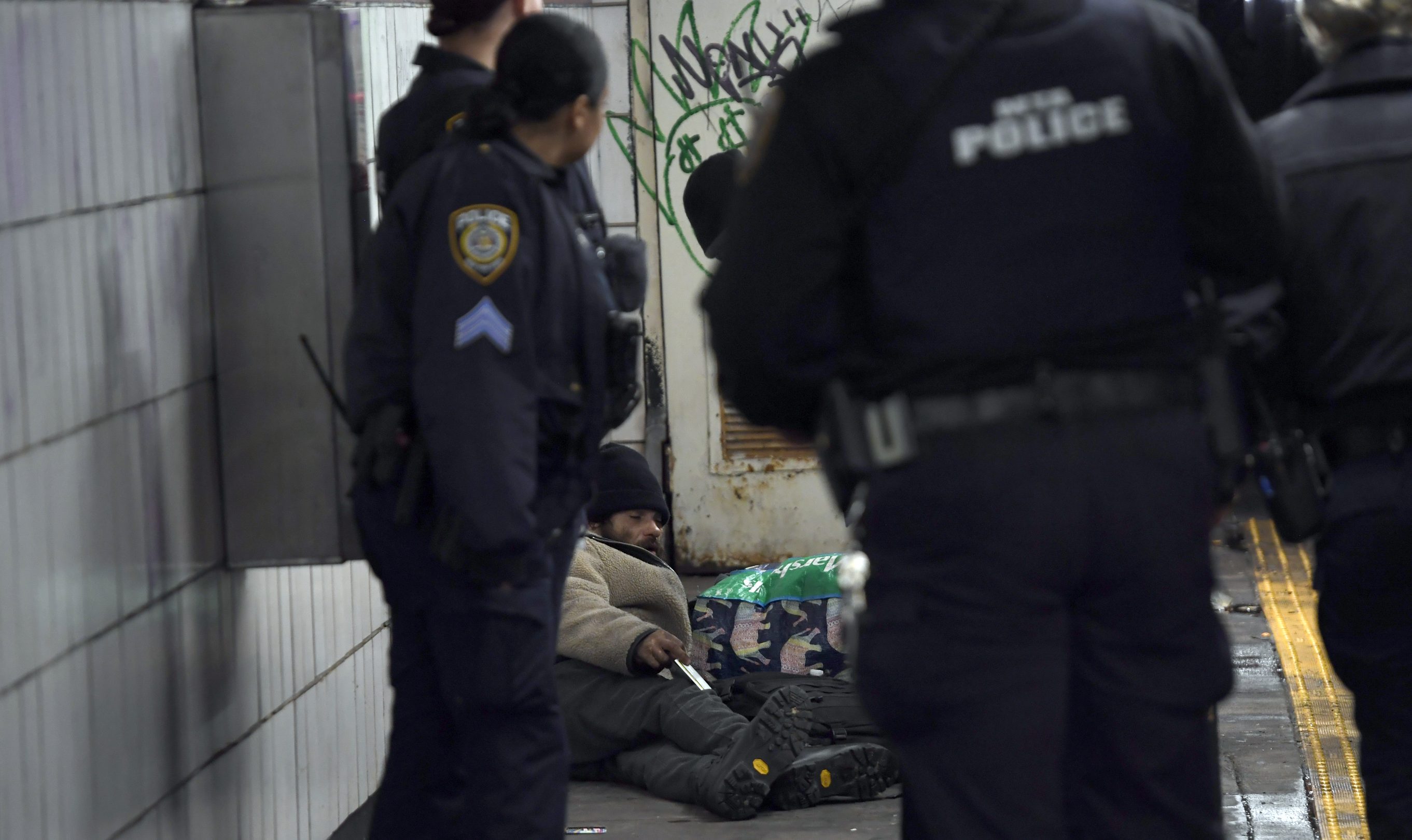A new policy paper from the Vera Institute of Justice dropped yesterday afternoon with the campaign-season headline, "Five Big Ideas for New York City’s Next Mayor to Deliver Safety, Accountability, and Justice."
Beyond its public safety prescriptions, the paper reminds us that even though crime is down — it is almost back down to its historic pre-pandemic low — a sizable portion of New Yorkers still use the word "unsafe" to describe this city, which by so many metrics is actually the safest big city in the nation.
But let's focus on the situation underground, where crime is also falling, yet discomfort at the likelihood of becoming a victim of crime remains.
Where does that discomfort come from? Some of it is obviously what each of us brings to the table — our tolerance, so to speak, for the realities of urban life. But it's more than that: There is genuine failure.
As the report points out, there are hundreds if not thousands of people sheltering nightly in the subway system and this creates disorder. And, the report says bluntly, "New York City lags behind [other cities] in creative solutions to address [this] disorder."
Help is on the way — the MTA is expanding its successful Subway Co-Response Outreach Teams or SCOUT program that helps connect the homeless or mentally ill to services. But the report argues that "we need to invest far more," which isn't apparently what policymakers at the federal level want to hear right now.
What do most New Yorkers think should be done? That's a tricky one because Vera's report included only a poll of Democratic voters. Of those, 55 percent said the city should "deploy trained experts to get New Yorkers who are homeless or in crisis connected to help," while 33 percent blamed "soft-on-crime politicians" who don't understand that "we need to get tough on crime."

If you add in the independents and Republicans in this town, it stands to reason that a small majority of New Yorkers may favor the "tough-on-crime" route, even though it would likely succeed only in cleansing the subways of needy people we don't want to see on our daily commute. The problem will persist, albeit elsewhere.
That said, we certainly know where U.S. Transportation Secretary Sean Duffy stands; he claimed last week that Gov. Hochul needs only "36 hours" of that tough-on-crime approach to fix the "shithole" (his word) subway. If she doesn't, he'll withhold funding, four million daily commuters be damned.
Will the Vera report achieve its goal of influencing the mayor's race? Who knows? But here's hoping it at least provokes a wider debate on how to eliminate the perception of crime as well as the reality of subway "disorder" in a way that doesn't merely dump needy people on the street.
Otherwise, it was a slow day (alas, also in the Met dugout). Here's the best of the web:
- Huge hat tip to Times real estate reporter Anna Kodé who did a deep dive into why it is essential that public space not be allowed to be privatized, in this case by cowardly officials at Columbia University.
- We hate to say we told you so, but outdoor dining is really tiny this season because the City Council and Adams administration ruined it by making it seasonal. (Gothamist)
- The U.S. Transportation secretary says he doesn't want to send more federal money to the "wasteful" MTA, but the agency says it's saving big money on capital projects. So there. (Transportation Today News)
- Then again, $160 million for a better bus to LaGuardia? (QNS)
- What the truck? A city pilot to rein in illegal parking is not big enough. (The City)
- Did you see how hard it was to park for Opening Day at Nationals Park in Washington, D.C.? Well, the American Public Transportation Association had the perfect retort:

- Meanwhile, we sent our video intern, Ilan Cardenas-Silverstein, to Yankee Stadium on the Nostalgia Train. It's a fun watch — and a reminder that baseball and trains are the perfect combo:






